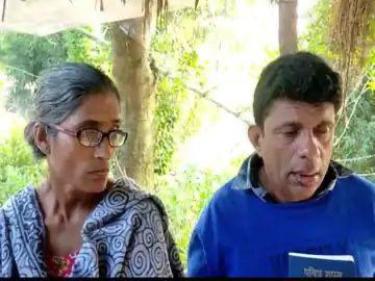
Pastor Jose Pappachan and his wife Sheeja were sentenced to five years imprisonment and fined Rs 25,000 each by the Ambedkar Nagar Sessions Court on January 22, 2025. Special Judge Ram Vilas Singh delivered the verdict under Uttar Pradesh’s anti-conversion law, while acquitting them of charges under the SC/ST Act.
The case began when BJP district secretary Chandrika Prasad filed a complaint on January 23, 2023. The prosecution alleged the couple, residents of Bank Colony in Pipariya, Madhya Pradesh, were attempting religious conversion in Shahpur Firoz village’s Dalit settlement.
During the trial, eleven witnesses testified about the couple’s activities. Local residents testified that the couple would visit and conduct meetings at the house of a lady in the village identified as Vifla where they would read Bible passages and advise the gathering against alcohol consumption and fighting. Witness Lovekush stated they would gather villagers to discuss “matters of knowledge” and discuss children’s education.
Several witnesses, including Manju and Roshni, acknowledged receiving Bibles but emphasized that the couple’s teachings focused on moral guidance and peaceful living. They mentioned the couple’s Christmas celebration where they distributed food to villagers.
The court files note that police recovered “one child-friendly pictorial Bible, four large diary-bound books in black with ‘Holy Bible’ printed on their covers, two smaller diaries, and four calendars with images of Jesus Christ.” The defence maintained these were standard religious materials for prayer meetings. They argued that these materials and activities fell within constitutional rights of religious practice and expression. Earlier bail proceedings had noted that distributing religious literature and offering moral advice did not constitute illegal activities.
Pastor Pappachan, who reportedly began his evangelical work in Uttar Pradesh in October 2022, was hospitalized with anxiety and high blood pressure after recent court proceedings. His wife was taken into custody on January 18, while he surrendered on January 22.
The court’s final judgment focused on the prosecution’s argument that offering education and material benefits constituted “allurement” under the anti-conversion law. However, defence witnesses consistently testified that no actual conversions took place, and the couple’s activities centred on prayer meetings and moral teachings.
The couple, who have no home or savings in Uttar Pradesh, spent eight months in jail before receiving bail through the efforts of an agency that works to help victims of persecution.
During earlier bail proceedings, the court had observed that “distributing Bibles, telling people not to drink alcohol, or advising people is not a crime under the law.” However, the final verdict took a different view, interpreting these activities as potential inducements under the anti-conversion law.
Court records show that despite evidence of only prayer meetings and moral teachings taking place, the conviction was secured under provisions that classify offering education and spiritual guidance as potential forms of allurement for conversion. The missionary couple, who left their home and livelihood in Kerala to serve in North India, now face their prison term without local family support or resources.




